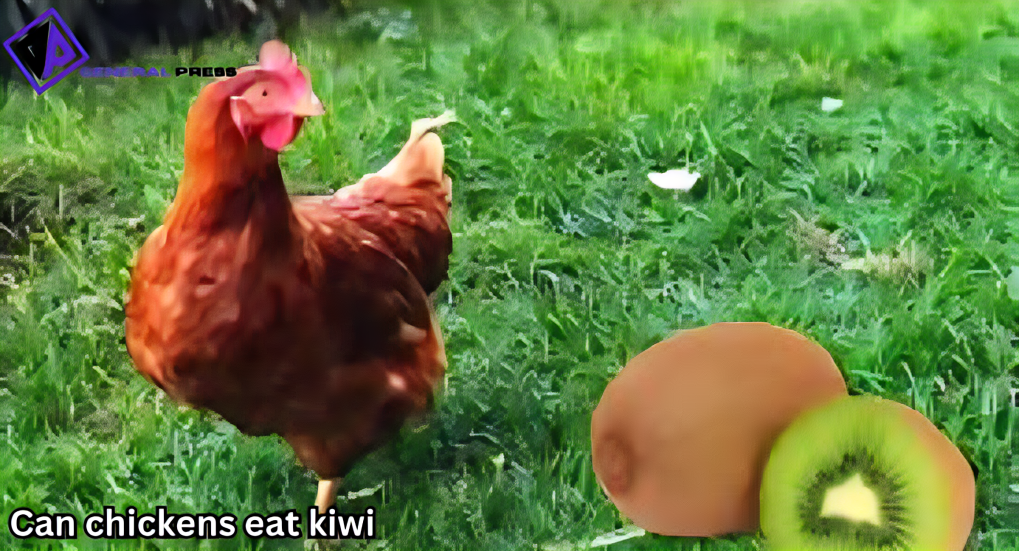Chickens are known for their curious nature and their willingness to try new foods. From grains and vegetables to fruits and even small insects, chickens have a diverse palate. But when it comes to feeding your chickens a more exotic fruit like kiwi, it’s natural to wonder: is it safe for them? Can chickense eat kiwi?
The short answer is yes, chickens can eat kiwi—but there are a few important considerations to keep in mind to ensure your flock’s health and well-being.
Nutritional Benefits of Kiwi for Chickens
Kiwi is a nutrient-packed fruit that is rich in vitamins, antioxidants, and minerals, making it a healthy treat for chickens when offered in moderation. Here are some of the key nutrients found in kiwi:
- Vitamin C – Kiwi is an excellent source of vitamin C, a crucial nutrient for supporting the immune system and overall health. While chickense are able to produce their own vitamin C, offering them kiwi can be a great way to provide an extra boost to their immune system, particularly in times of stress or during molting.
- Vitamin K – This vitamin is important for blood clotting and bone health. Vitamin K also helps regulate calcium levels, which is essential for egg production, particularly in laying hens.
- Fiber – Kiwi contains a good amount of dietary fiber, which helps with digestion. Providing fiber-rich fruits like kiwi can contribute to the overall digestive health of chickense and help prevent issues like constipation.
- Antioxidants – Kiwi contains several antioxidants, including vitamin E and polyphenols, which can help fight oxidative stress and reduce the risk of chronic diseases. These antioxidants are beneficial for maintaining the health of your chickense’ feathers, skin, and organs.
- Potassium – This mineral is vital for maintaining healthy fluid balance, muscle function, and nerve function. Potassium helps ensure that chickense stay hydrated and maintain proper muscle contractions, which is especially important during egg-laying.
Is Kiwi Safe for Chickens?
Also Read: Wildfulness: A New Approach to Mindfulness in Nature
While kiwi is a safe and nutritious treat for chickens, there are a few important considerations to ensure that your flock enjoys it without any issues.
- Remove the Skin (Optional but Recommended) – The skin of the kiwi is edible for chickense, but it can be tough and difficult to digest for some birds. The fuzzy texture may also be off-putting to some chickense. It’s recommended to peel the kiwi before offering it to your flock. Doing so makes the fruit more palatable and easier to eat.
- Moderation is Key – Kiwi, like any fruit, should be offered in moderation. While it’s packed with nutrients, it’s also high in natural sugars. Too much fruit can upset your chickense’ digestive system or lead to obesity over time. A small slice or piece of kiwi a few times a week is more than enough to provide them with the health benefits without overloading them on sugar.
- Cut into Small Pieces – Chickense have small beaks, so it’s best to cut the kiwi into smaller pieces before offering it to them. This makes it easier for them to peck at and eat, ensuring that they enjoy the fruit without struggling to break it apart.
- Avoid Any Rotten Kiwi – Like with any food, you should never offer rotten or moldy kiwi to chickense. Rotten fruit can harbor harmful bacteria and fungi that could make your chickense sick. Always check the fruit for any signs of spoilage before feeding it to your flock.
- Watch for Allergic Reactions – Though rare, some chickense may have sensitivities or allergies to certain foods, including kiwi. If you’re introducing kiwi for the first time, monitor your chickense closely for any signs of discomfort, such as diarrhea, lethargy, or changes in behavior. If any of these symptoms occur, it’s best to remove kiwi from their diet and consult a veterinarian.
Other Fruits to Feed Chickens
Kiwi is just one of many fruits that chickens can enjoy as part of a varied diet. Offering a wide range of fruits can help provide your flock with a balanced mix of nutrients. Some other fruits that are safe and healthy for chickens include:
- Apples – Chickens love apples, and they are a good source of fiber and vitamin C. Be sure to remove the seeds, as apple seeds contain cyanide, which can be toxic to chickense in large amounts.
- Bananas – Bananas are rich in potassium and are soft enough for chickens to easily eat. They also contain natural sugars that can serve as a quick energy boost for your flock.
- Berries – Strawberries, blueberries, raspberries, and blackberries are all safe for chickens and full of antioxidants. These small fruits are perfect for chickens to peck at and enjoy.
- Melons – Watermelon, cantaloupe, and honeydew melons are hydrating fruits that chickens enjoy, especially in the hot summer months. Melons are a great source of vitamins A and C.
- Pineapple – Pineapple is another tropical fruit that chickens can eat, but it should be given in moderation due to its high sugar content. Pineapple also provides vitamin C and bromelain, an enzyme that aids digestion.
What to Avoid Feeding Chickens
While most fruits are safe for chickens, there are certain foods that should be avoided. Some foods can be toxic or harmful to chickens, and it’s important to be mindful of what you’re offering to your flock. Foods to avoid include:
- Avocado – Contains a compound called persin, which is toxic to chickens.
- Citrus Fruits in Excess – While small amounts of citrus are generally safe, too much citrus can cause digestive upset.
- Chocolate – Like in many animals, chocolate is toxic to chickens and should never be offered.
- Onions and Garlic – These can cause digestive problems and affect the flavor of eggs.
FAQ:
1. Can chickens eat kiwi?
Yes, chickens can eat kiwi in moderation. Kiwi is a healthy fruit that provides vitamins and nutrients beneficial to your flock, such as vitamin C, potassium, and fiber.
2. Are there any parts of the kiwi that chickens shouldn’t eat?
While chickens can eat the flesh of the kiwi, it’s best to remove the skin and seeds. The skin can be tough for chickens to digest, and the seeds, though not harmful in small quantities, may cause digestive issues if consumed in large amounts.
3. How should I prepare kiwi for my chickens?
Peel the kiwi and cut it into small, manageable pieces for your chickens. You can serve it fresh or mix it with other fruits and vegetables to create a nutritious treat.
4. How much kiwi can I feed my chickens?
Kiwi should be given as an occasional treat, not as a staple in your chickens’ diet. A small portion a few times a week is plenty, as excessive fruit can upset their digestive system due to its high sugar content.
5. What nutritional benefits does kiwi provide to chickens?
Kiwi is rich in vitamin C, which helps boost your chickens’ immune system. It also contains potassium for healthy muscle function, fiber for digestion, and antioxidants that contribute to overall health.
Conclusion
Kiwi is a nutritious and safe fruit for chickens to enjoy, provided it’s offered in moderation and without the skin. Packed with essential vitamins, antioxidants, and fiber, kiwi can be a healthy treat that supports your flock’s immune system, digestion, and overall health. As with any treat, always ensure that your chickens’ primary diet consists of balanced chicken feed to meet their nutritional needs. By incorporating kiwi and other fruits into your chickens’ diet, you can provide them with a varied and exciting menu while supporting their well-being.




